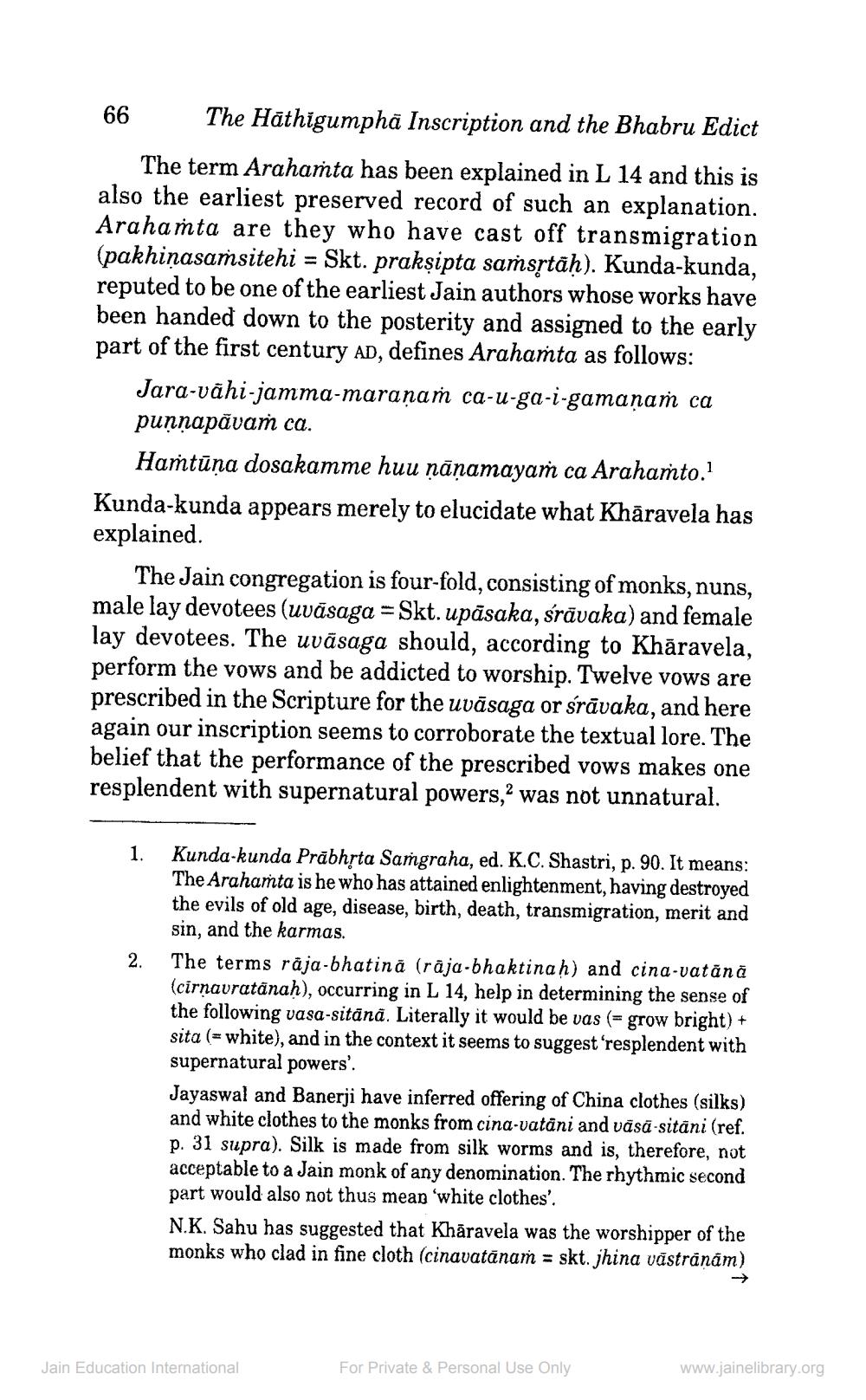________________
The Hathigumpha Inscription and the Bhabru Edict
The term Arahamta has been explained in 14 and this is also the earliest preserved record of such an explanation. Arahamta are they who have cast off transmigration (pakhinasamsitehi = Skt. prakṣipta samsṛtāḥ). Kunda-kunda, reputed to be one of the earliest Jain authors whose works have been handed down to the posterity and assigned to the early part of the first century AD, defines Arahamta as follows:
66
Jara-vahi-jamma-maranam ca-u-ga-i-gamanam ca punṇapavam ca.
Hamtūna dosakamme huu ṇāṇamayam ca Arahamto.1 Kunda-kunda appears merely to elucidate what Khāravela has explained.
The Jain congregation is four-fold, consisting of monks, nuns, male lay devotees (uvāsaga = Skt. upāsaka, srāvaka) and female lay devotees. The uvasaga should, according to Khāravela, perform the vows and be addicted to worship. Twelve vows are prescribed in the Scripture for the uvasaga or sravaka, and here again our inscription seems to corroborate the textual lore. The belief that the performance of the prescribed vows makes one resplendent with supernatural powers,2 was not unnatural.
1.
2.
Kunda-kunda Prabhṛta Samgraha, ed. K.C. Shastri, p. 90. It means: The Arahamta is he who has attained enlightenment, having destroyed the evils of old age, disease, birth, death, transmigration, merit and sin, and the karmas.
The terms raja-bhatina (raja-bhaktinaḥ) and cina-vatanā (cirnavratanaḥ), occurring in L 14, help in determining the sense of the following vasa-sitänä. Literally it would be vas (= grow bright) - sita (white), and in the context it seems to suggest 'resplendent with supernatural powers'.
+
Jayaswal and Banerji have inferred offering of China clothes (silks) and white clothes to the monks from cina-vatani and väsä-sitāni (ref. p. 31 supra). Silk is made from silk worms and is, therefore, not acceptable to a Jain monk of any denomination. The rhythmic second part would also not thus mean 'white clothes'.
N.K. Sahu has suggested that Khāravela was the worshipper of the monks who clad in fine cloth (cinavatānam = skt. jhina vāstrāṇām)
Jain Education International
For Private & Personal Use Only
→→
www.jainelibrary.org




